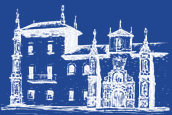Abstract
This article focuses on the ethnic identity formation among one hundred Basque-American youth between the ages of nine and fifteen who were interviewed at the beginning and end of a two week long Udaleku held in Bakersfield California in 2013. This project explores four key questions related to the internal thought processes used by camp attendees to account for or try to make sense of their ethnicity. First, were camp attendees confident or confused about their ethnicity? Second, have participants attempted to “explore” their ethnicity and, if so how? Third, what does “being Basque” mean to camp participants and is their understanding primarily derived from the self or from significant others? And fourth, how do the above questions vary in terms of age, gender, family composition and club affiliation.
DOI
10.18122/boga/vol6/iss1/2/boisestate
Recommended Citation
Petrissans, Catherine M.
(2018)
"Ethnic Identity Formation Among Basque-American Adolescents,"
BOGA: Basque Studies Consortium Journal: Vol. 6
:
Iss.
1
, Article 2.
10.18122/boga/vol6/iss1/2/boisestate
Available at:
https://scholarworks.boisestate.edu/boga/vol6/iss1/2

About the Author
Dr. Catherine M. Petrissans is currently Professor of Sociology at Clarion University of Pennsylvania. She has served as chair of the Department of Sociology and teaches sociology courses in the area of social theory, inequality, family, and social problems. Dr. Petrissans conducts research on ethnic identity among Basque-American youth and has recorded albums in the endangered Basque language with her folk group NOKA.
EDUCATION:
B.A. Loyola Marymount University
M.A. & PhD, University of California, Riverside